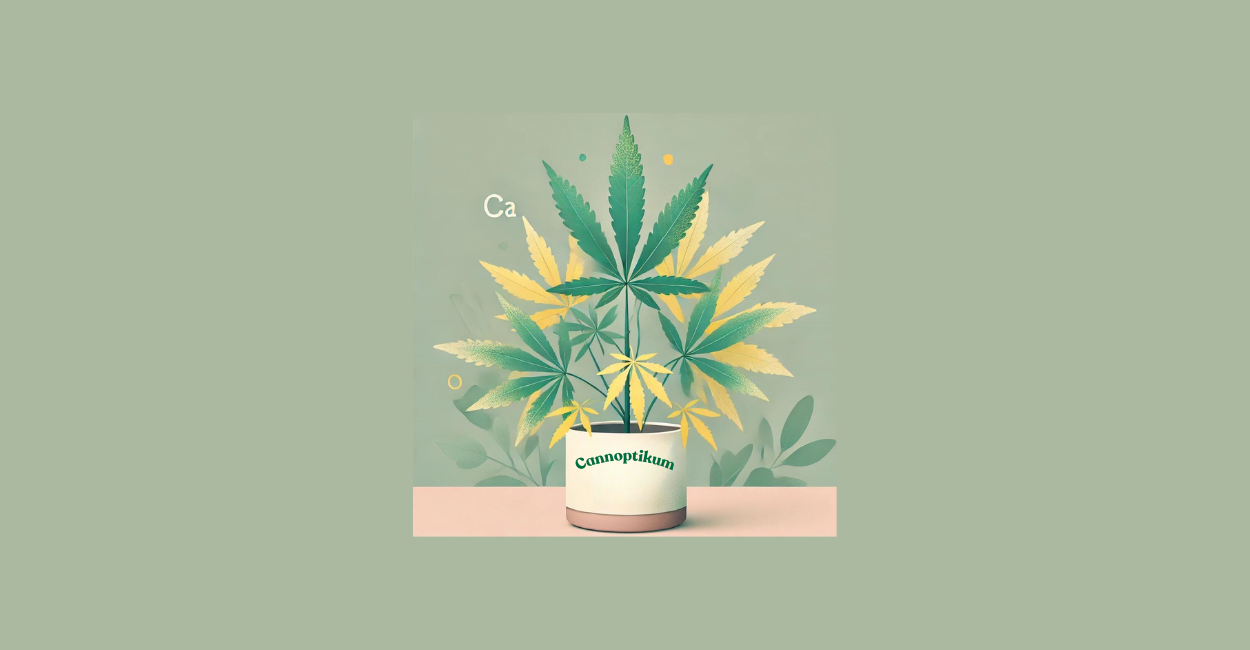Are your cannabis plants showing brittle leaves and stunted roots? This could indicate a calcium deficiency in cannabis. In this article, we explain how to identify the signs of a calcium deficiency and what solutions are available to you. Let's find out together how calcium can improve the growth and health of your plants!
Table of Contents
The Role of Calcium
Calcium is an essential nutrient crucial for the healthy growth of cannabis plants. It is a key component of cell walls, directly contributing to cell vitality. Additionally, calcium enhances nutrient uptake by supporting the development of strong roots. This is particularly important as healthy roots enable efficient water and nutrient absorption. Moreover, calcium regulates enzyme activities necessary for photosynthesis and transpiration. Our experience shows that cannabis plants supplied with adequate calcium are more robust and resistant to environmental stressors.
Signs and Symptoms
A calcium deficiency often manifests first in the leaves and can lead to various symptoms:
- Leaf Symptoms: Yellowing and necrotic spots, especially at the edges and tips of the leaves. These symptoms result from the breakdown of cell walls, weakening the leaves and making them more susceptible to damage.
- Weak Stems: Stems may become brittle and less resilient, making the plant more vulnerable to physical damage.
- Root Rot: Inadequate root growth can lead to poor drainage and ultimately root rot, reducing the plant's ability to absorb nutrients.
- Wilting: The entire plant may lose vitality and begin to wilt due to disrupted nutrient and water uptake.
In our practice, we have found that early identification of these symptoms is crucial to prevent further damage to the plants. Regular monitoring is therefore essential.
Causes of Calcium Deficiency
There are several causes of calcium deficiency in cannabis plants:
- Incorrect pH Level: A pH level outside the optimal range (6.0-7.0) can significantly impair the plant's ability to absorb calcium. This is particularly critical in hydroponic systems where the pH must be precisely controlled.
- Poor Soil Quality: Soils with low organic matter or poor structure can limit calcium availability. Good soil structure is crucial for nutrient uptake.
- Overwatering: Too frequent watering can lead to root rot, reducing the plant's ability to absorb calcium. Proper drainage is key here.
- Hard Water: Using hard water can cause nutrient imbalances as high mineral levels can interfere with calcium absorption by the roots.
By addressing these factors, growers can identify the causes of calcium deficiency and take targeted corrective actions.
How to Treat Calcium Deficiency in Cannabis Plants
To effectively treat calcium deficiency, several steps are required:
- pH Adjustment: Monitor and adjust the pH of the growing medium. A pH range of 6.0 to 7.0 is ideal for calcium uptake.
- Organic Amendments: Adding dolomitic lime or garden lime (2-4 grams per liter of substrate) can improve calcium supply. These amendments help stabilize pH levels and provide additional calcium.
- Balanced Fertilization: Using fertilizers specifically formulated for cannabis cultivation can help avoid nutrient problems. These fertilizers often contain calcium boosters (5-10 ml per liter of water) to support the plant.
- Avoid Overwatering: Implement proper watering practices to ensure roots do not stand in water and rot.
Our preferred method for quickly addressing calcium deficiency is using calcium boosters and regularly checking the pH level. This has proven particularly effective in our cultivation operations.
How to Prevent Calcium Deficiency in Cannabis Cultivation
Preventing calcium deficiency is the most effective way to ensure healthy cannabis plants:
- Improve Soil Biology: Promote a healthy and diverse microbial population in the soil. Microbes play a key role in nutrient availability and uptake.
- Refine Fertilization Plan: Ensure the correct amount of nutrients is applied at the right time. A well-thought-out fertilization schedule can help avoid nutrient deficiencies.
- Regular pH Monitoring: Regularly check the soil pH to detect and correct fluctuations early.
- Make Your Own Compost: Use homemade compost as a high-quality, cost-effective calcium source. Compost improves soil structure and nutrient availability.
- No-Dig Method: Avoid soil compaction through gentle cultivation methods. This promotes root development and nutrient uptake.
- Irrigation Management: Ensure the soil remains adequately moist without becoming waterlogged. This promotes optimal nutrient uptake and prevents root rot.
Through these preventive measures, we have achieved excellent results in our cultivation operations and effectively prevented calcium deficiency.
Calcium: An Important Mineral
Calcium is a central mineral for the growth and health of cannabis plants. From germination to flowering, calcium plays a crucial role in cell structure, nutrient uptake, and stress resistance. Adequate calcium levels promote the vitality and productivity of the plants. By early detection and targeted treatment of calcium deficiency, growers can ensure that their plants reach their full potential and deliver high yields.
Important Notice:
Ensuring sufficient calcium intake for your cannabis plants is crucial for their health and productivity. If you observe symptoms of calcium deficiency such as yellowing leaves or weak stems, you should adjust your nutrient program. Adding calcium-rich nutrients or supplements can help remedy the deficiency. Always check the pH levels of your soil or growing medium, as incorrect pH levels can inhibit calcium uptake. For more information and suitable products to address nutrient deficiencies, visit our Product Category for Cannabis Plant Fertilizer - Calcium Nutrients.
Disclaimer
This website's content is for informational use only and should not be considered medical or legal advice. Always consult a healthcare professional for health-related issues. Be aware of local regulations regarding cannabis cultivation. We are not liable for any actions taken based on this information.
Conclusion:
Calcium deficiency can significantly impact the growth and yields of cannabis plants. By early detection of symptoms and targeted measures for treatment and prevention, we can ensure that our plants remain healthy and productive. Our experience has shown that careful soil management and regular pH monitoring are crucial to avoiding calcium deficiency.

